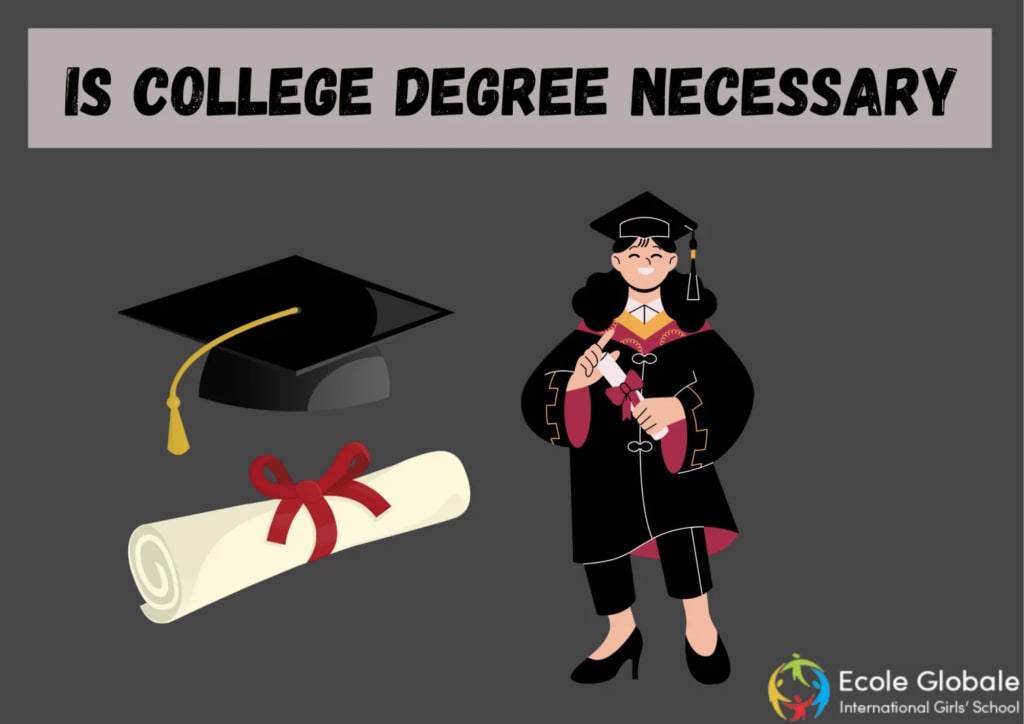
In today's rapidly changing job market, the question of whether a college degree is necessary is more relevant than ever. Many parents, college-going students, and teenagers are re-evaluating the traditional path of higher education in light of new career opportunities that do not require a four-year degree. This article explores the necessity of a college degree, the advantages and disadvantages of having one, and the alternative pathways available.
The Changing Landscape of Education and Employment
The Value of a College Degree
A college degree has traditionally been seen as a ticket to better job prospects, higher earning potential, and a broader range of career opportunities. According to Indeed, "hiring managers often view a college degree as proof of a candidate’s commitment and competence." However, the value of a degree can vary significantly depending on the field of study and the job market.
The Shift in Employer Requirements
As highlighted by the Harvard Business Review, "many companies are now rethinking the necessity of a college degree for their hiring processes." The Great Resignation and the COVID-19 pandemic have accelerated this trend, forcing employers to consider alternative credentials and skills over traditional degrees. This shift is creating more opportunities for individuals without a degree to secure well-paying jobs.
Advantages of Having a College Degree
Higher Earning Potential
Statistics consistently show that individuals with a college degree tend to earn more over their lifetimes compared to those without one. This increased earning potential can provide greater financial stability and opportunities for advancement.
Broader Career Opportunities
A college degree can open doors to a wider range of career opportunities. Many professional roles, particularly in fields such as healthcare, engineering, and education, still require a degree as a basic qualification.
Networking Opportunities
College provides a unique environment for building a professional network. Students have access to alumni networks, internships, and campus recruiting events that can be invaluable in launching a career.
Disadvantages of Having a College Degree
High Cost of Education
The rising cost of tuition and associated expenses is a significant disadvantage. Many students graduate with substantial debt, which can take years to pay off and limit financial freedom.
Time Commitment
Earning a college degree typically requires a four-year commitment. During this time, students may miss out on gaining practical work experience and earning an income.
Uncertain Return on Investment
Not all degrees offer a good return on investment. Graduates in some fields may struggle to find jobs that justify the cost of their education.
Alternative Pathways to Career Success
Vocational and Trade Schools
Vocational and trade schools offer focused training in specific fields such as healthcare, technology, and skilled trades. These programs are often shorter and less expensive than traditional degrees and can lead to high-paying jobs.
Online Learning and Certifications
Online learning platforms like Coursera, Udacity, and LinkedIn Learning provide access to a wide range of courses and certifications. These credentials can be a cost-effective way to gain new skills and improve employability.
Apprenticeships
Apprenticeships combine on-the-job training with classroom instruction, allowing individuals to earn while they learn. Apprenticeships are available in many fields, including technology, manufacturing, and healthcare.
The Role of Social Media and Personal Branding
Building a Professional Online Presence
As noted by the Harvard Business Review, "job seekers can use social media to create a strong professional brand and showcase their skills." Platforms like LinkedIn are essential for connecting with potential employers and industry professionals.
Showcasing Skills and Achievements
Candidates can use social media to highlight their skills and achievements, making themselves more attractive to employers. Posting about industry trends, sharing work samples, and engaging with professional communities can demonstrate commitment and expertise.
Conclusion
The necessity of a college degree is no longer as clear-cut as it once was. While a degree can offer significant advantages in terms of earning potential, career opportunities, and networking, it also comes with substantial costs and time commitments. The changing job market and employer requirements have opened up alternative pathways to career success, such as vocational training, online learning, and apprenticeships. Additionally, building a professional online presence and personal branding through social media has become crucial in today's job market.
Ultimately, the decision to pursue a college degree should be based on individual career goals, financial situation, and the specific demands of the desired industry. With careful consideration and the right approach, both traditional and alternative educational paths can lead to a fulfilling and successful career.
About the Creator
Enjoyed the story? Support the Creator.
Subscribe for free to receive all their stories in your feed. You could also pledge your support or give them a one-off tip, letting them know you appreciate their work.





Comments
There are no comments for this story
Be the first to respond and start the conversation.